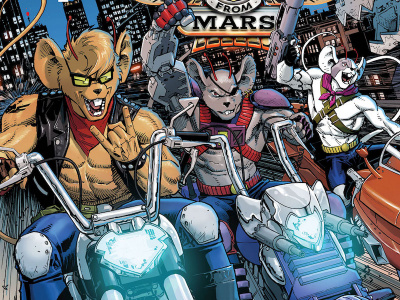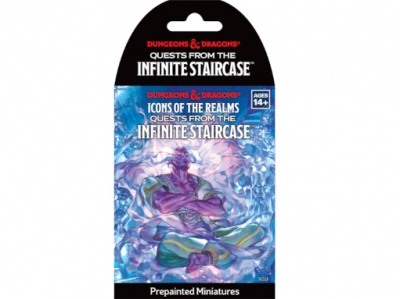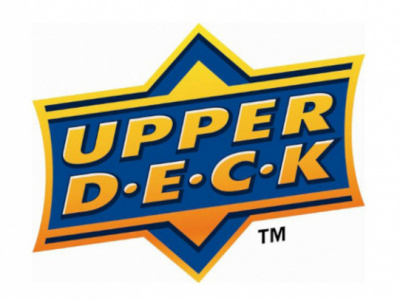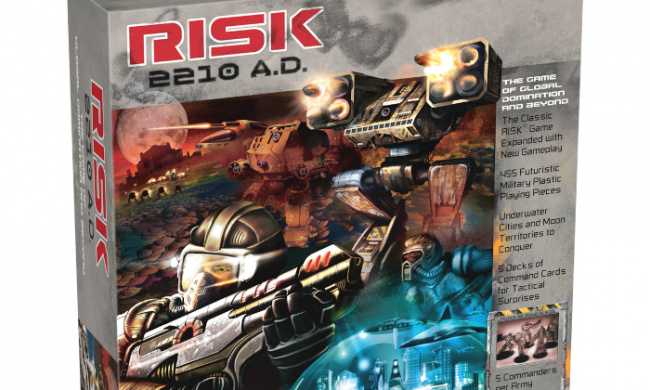 We spent some time with Wizards of the Coast Senior Brand Manager R.E. Dalrymple, talking about the recent announcement that the company was ending production of the Kaijudo TCG (see "WotC Bails on 'Kaijudo'"), and drilling down into the reasons and the company's plans for the game.
We spent some time with Wizards of the Coast Senior Brand Manager R.E. Dalrymple, talking about the recent announcement that the company was ending production of the Kaijudo TCG (see "WotC Bails on 'Kaijudo'"), and drilling down into the reasons and the company's plans for the game. Kaijudo TV programming that ran on a Hasbro channel and was produced to support the game was canceled. Was that due to the ratings or due to the game sales at mass?
The first two seasons of the TV show are still up on Netflix and a variety of places. We didn’t do more than those first two seasons. More than just about the mass channels, we just didn’t gain enough traction in general in the brand to make more episodes make sense. That’s really the long and short of it.
When we refocused the brand on organized play early last year, that gave us momentum, but it really wasn’t enough to warrant picking up another season at that point. We had hoped that as we moved along with organized play with some of our offerings that we could see the overall brand gain enough traction to make that possible, but it just wasn’t in the cards.
Was there a disconnect between the ratings and sales, or were the ratings also not that great?
It’s tough. The ratings have to be put in perspective in how Kaijudo performed against other shows on The Hub. There were a number of times when it did well compared to those other shows, but it’s more about just in general we weren’t able to get enough traction as a whole on it. By putting it on Netflix, we’ve seen a pretty good, consistent audience viewership, but it just wasn’t enough overall.
This game has been so successful in Japan over such a long period, and Wizards of the Coast has taken a couple of different shots with different positioning and trying different things on the story side and not been successful. Why do you think that is?
I worked on the business in Japan for about six years. Japan has a different media and TCG culture than we do. While we do have solid TV in Japan, really the big driver for Duel Masters in Japan has always been the monthly manga in CoroCoro magazine. Somewhere between 800,000 and a million boys read that magazine every month.
Many times over the course of the last 15 years, it’s been the number one or number two manga story in that magazine for that audience. When you consider that you have 20 pages of manga coupled with strategy articles and calls to action about upcoming events and products, so players can read the story and then go live the story, you have a system that can run on all cylinders. We just don’t have something like that here. That’s the big difference that you see there.
Certainly not at that scale. You could do a comic, but something that sold at that scale would be front page news.
And that’s monthly. It’s amazing, and it’s part of the culture. It’s all to the quality of manga writing for that audience. When you consider that we have regularly gotten new audiences of 8- to 10-year-old boys into TCG play with Duel Masters year after year, it’s pretty awesome. A lot of other games tend to age up.
The manga was inconsistent with the Kaijudo TV show. Is that why you didn’t bring it over?
It’s about the culture of reading manga and the way the audience consumes its media. In the U.S. we don’t have something that replicates that distribution system. It’s awfully hard to get something like that started. That’s basically what it comes down to.
You said it didn’t get the traction you needed. Do you attribute that to the story or the game or some combination?
First we have to look at it from [the perspective of] a broad audience. When we launched Kaijudo our intention was to bring as many new fans as possible into the TCG category, so the first challenge was to get as many eyeballs on the show as possible. There’s a variety of reasons why the show might not have gotten the audience that we’ve been looking for. The writers did a fantastic job of building emotional connection and everything. It’s more about getting those eyeballs on the content. We just didn’t get enough folks to try out the trading card game as follow-up to that initial media interest.
On a second point, as we put more of our focus on the hobby channel and organized play last year we were seeing an increase in audience, but we didn’t figure out the right way to engage the average fans to get them more involved. There were a lot of people that sampled it; we just didn’t get enough people to turn it into the lifestyle that we wanted it to be.
So they would try it but wouldn’t become regular purchasers at the percentage that you’d hoped?
I think that’s accurate. We just didn’t get our product mix right, is what it came down to. We did a draft this year to try to figure out how to engage these fans on a deeper level and it just didn’t produce the results we hoped.
This year when you were trying to work more with the hobby, it seemed you were trying to take the game a little older.
Yes, that was an effort by us to try to meet the audience where it is, but at the same time meet what we continue to see as a fan base that exists in that channel. We just didn’t find the right product mix to meet those fans.
It was about six or eight years between tries. Should we be looking ahead six to eight years for Wizards’ next try on Duel Masters here?
First let me say that we have a great game. Duel Masters is a fantastic game--that and the fact that it continues to reinvent itself and be successful in Japan with the target audience of 8- to 12-year-olds, that’s one of the reasons we keep looking at it and analyzing it and trying to figure out "how do we make this work?" The point is we have to keep looking at what will make sense for the audience.
We know we have a great game and it continues to be successful in Japan and we have a great, loyal, super-passionate fan base here and that’s one of the reasons it’s so sad to see us not hit the mark with our product offerings.
Is Pokemon in that 8- to 12-year-old market?
Yes, a little. The category in general, in my opinion, is skewing a little older.
Is it just not possible to get that 8- to 12-year-old market here in the States because they’re doing other things?
I’m a persistent guy, and I think we just have to figure out what the right mix is between products to make that happen. I do believe that with the right mix of products (digital and analog, or you name it) that we can find something to make that audience work.
What’s going to happen to the Kaijudo people at Wizards?
Most of them have been picking up work on other teams. We have good cross-functional teams. A lot of our people not only worked on Kaijudo but also on Duel Masters, Magic and D&D and lots of other things. We have only a few people dedicated to Kaijudo but even those people were, for the most part, moving over to other work. We did eliminate a couple of positions but most of the people were reassigned, which is good because there’s a lot of creative work that we did with Kaijudo and its exciting to see the spirit that generated that work move over to Magic, D&D and Duel Masters.







